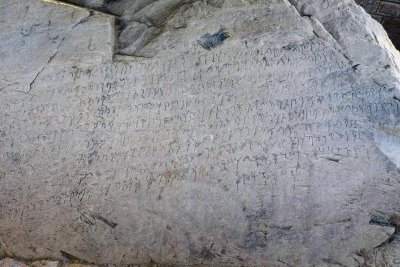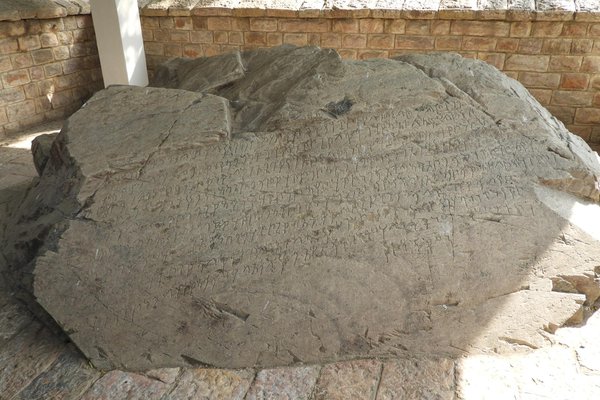Pakistan
Shahbazgarhi Rock Edicts
Site Info
Official Information
- Full Name
- Shahbazgarhi Rock Edicts (ID: 1880)
- Country
- Pakistan
- Status
-
On tentative list 2004
Site history
History of Shahbazgarhi Rock Edicts
- 2004: Added to Tentative List
- Added to tentative list
- Type
- Cultural
- Criteria
Links
- UNESCO
- whc.unesco.org
All Links
UNESCO.org
- whc.unesco.org — whc.unesco.org
Community Information
- Community Category
- Archaeological site: South (East) Asian
- Secular structure: Civic and Public Works
Travel Information
Recent Connections
News
No news.
Recent Visitors
- henryjiao18
- Roman Bruehwiler
- Alexander Lehmann
- Stanislaw Warwas
- Wojciech Fedoruk
- Szucs Tamas
- Thomas Buechler
Visitors of Shahbazgarhi Rock Edicts
Community Reviews
Show full reviews
We visited the Shahbazgarhi Rock Edicts just outside the city of Mardan near Peshawar, during our attempt to pick up most of Pakistans’s T List sites. The immediate impression given by the couple of inscribed rocks (photo1) near a small village, under rather utilitarian “sheds” and without entry fee (and with no other visitors until a horde of village kids arrived to look at us “strange creatures”!) is of a rather low key site with little chance of demonstrating OUV. However, on further investigation and understanding, there is far more to the site than meets the eye and there is also a multi-national dimension to be covered. It really is amazing to think that these carvings (photo 2) have survived on this rock for around 2250 years and that the instructions they convey still have significantly validity.
I can do no better than to quote verbatim from the T List description. The “rock edicts are cut into the surface of two large boulders on the side of a small rocky outcrop in the Vale of Peshawar. They record fourteen edicts of the Mauryan emperor, Asoka (r. c. 272-235 BC) and represent the earliest irrefutable evidence of writing in South Asia. Dating to middle of the third century BC, they are written from right to left in the Kharosthi script”
More background copied from Wiki “These inscriptions are dispersed throughout the areas of modern-day Bangladesh, India, Nepal and Pakistan and represent the first tangible evidence of Buddhism. The edicts …
Keep reading 0 comments
